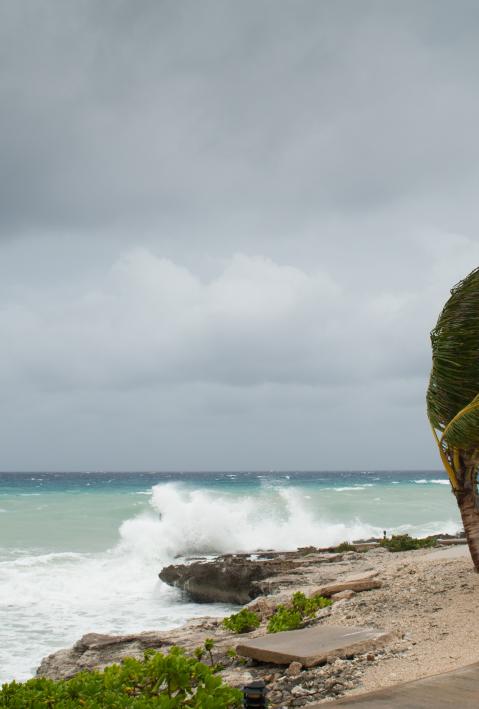The international community adopted the Paris Agreement in 2015 to limit global warming and thus the consequences of climate change. However, the current climate mitigation pledges submitted by the individual states will not meet either the 1.5°C or the 2°C targets. Climate change might therefore be much more severe than currently predicted. Extreme climate change scenarios (high-end scenarios) show the consequences of strong climate change, which is depicted in the upper ends of the climate projections of the Intergovernmental Panel on Climate Change (IPCC). The scenarios also take into account the effects of crossing tipping points in the Earth system, which are triggered as a result of processes such as the melting of ice sheets and cause abrupt system changes. High-end scenarios are little researched so far, in Germany, as well as internationally. In such scenarios, traditional adaptation options might reach their limits. If, for example, a further increase of dikes to adapt to sea-level rise is no longer possible, inhabitants may have to abandon their land.
The project "High-End scenarios - National adaptation measures for a strong climate change scenario" examines what extreme climate scenarios can look like in Germany and what the possible limits to adaptation are. On behalf of the Federal Environment Agency (UBA), the project team is developing various scenarios on selected topics and illustrating them with case studies and narratives. In addition, adaptation options and especially the limits of adaptation to a strong climate change will be analysed.
adelphi is organising and leading participatory processes that bring together various stakeholders. In workshops and dialogue events, the project team will discuss the scenarios with experts from politics and practice. A normative check with stakeholders from different areas of society ensures that the scenarios consider different perspectives. In addition to the national impacts of climate change, the project is increasingly establishing links to international impacts and the consequences for Germany. One focus of the project is the potential for adaptation either through conventional adaptation measures or through transformative adaptation. The project will communicate the results to various target groups. Because only if we know what realistic worst-case scenarios look like can politics and society adapt to them.

